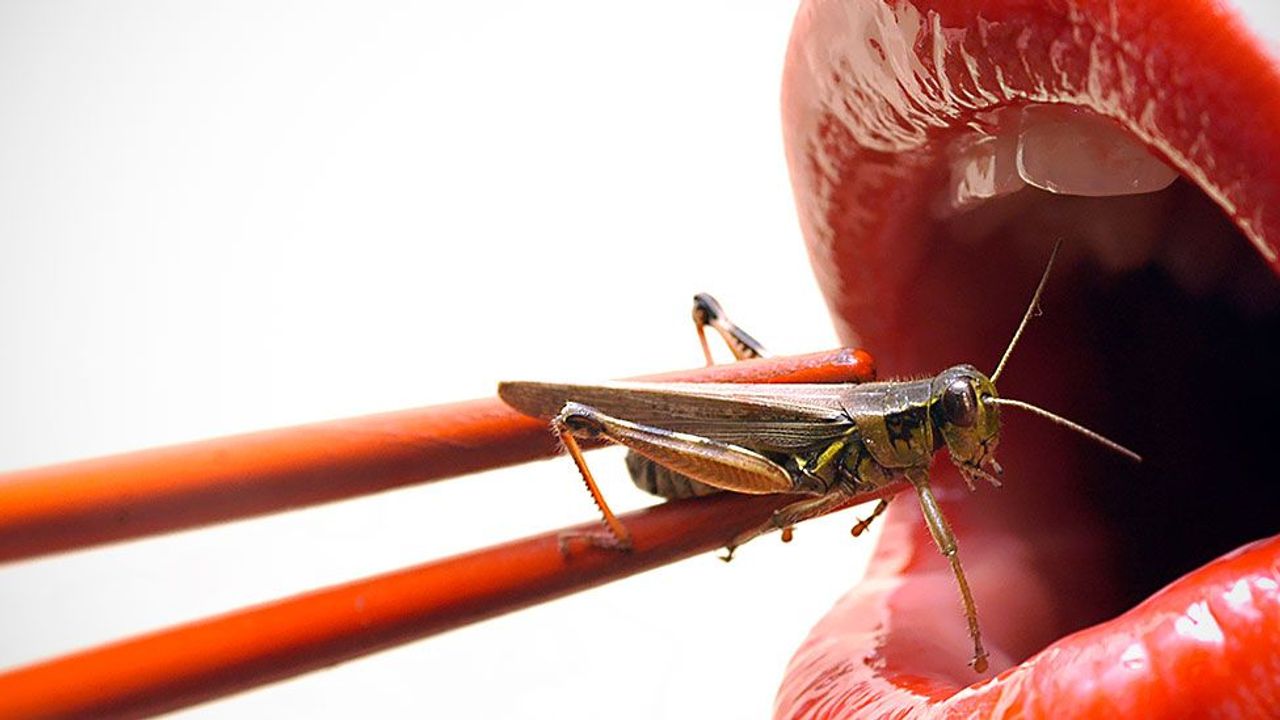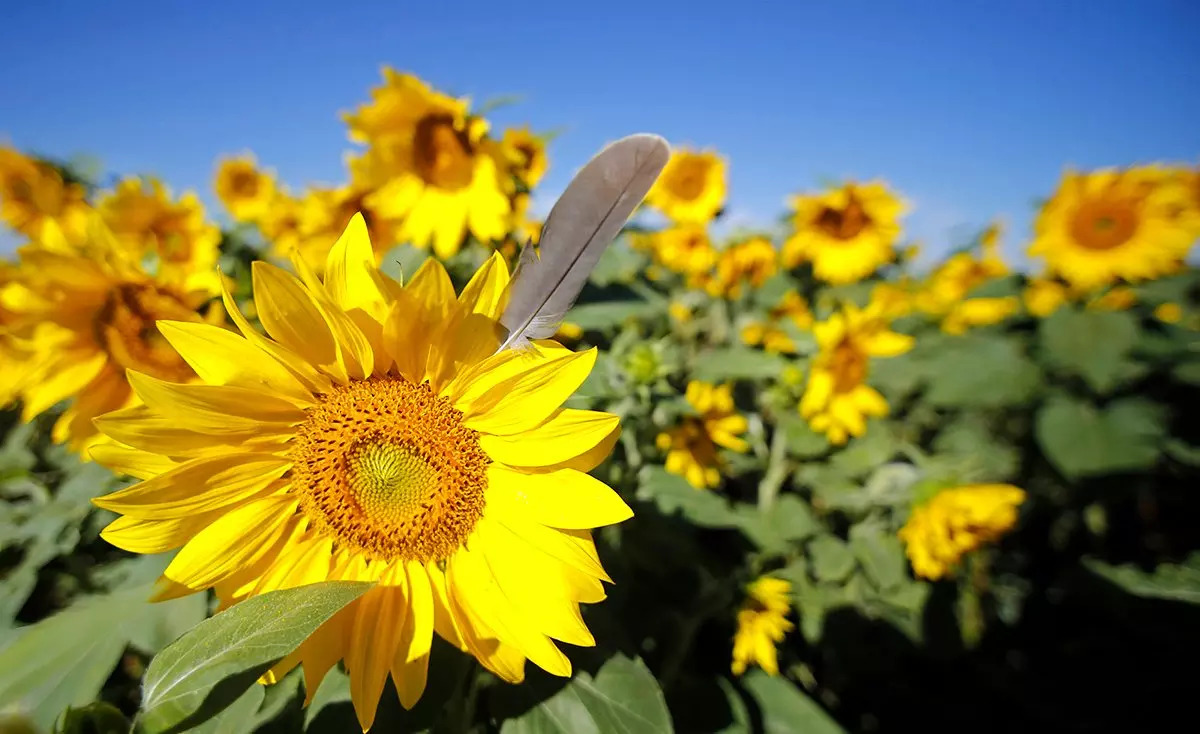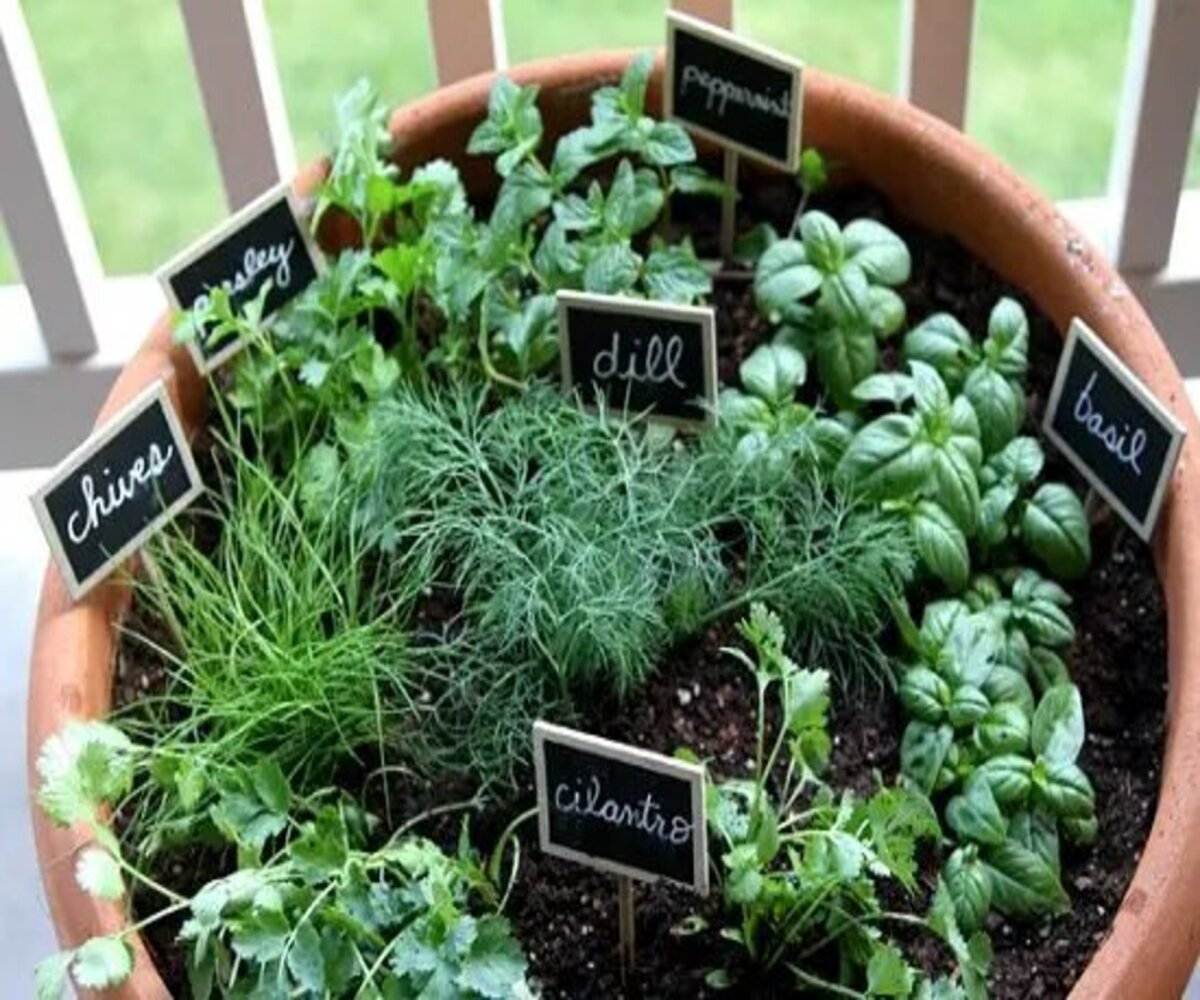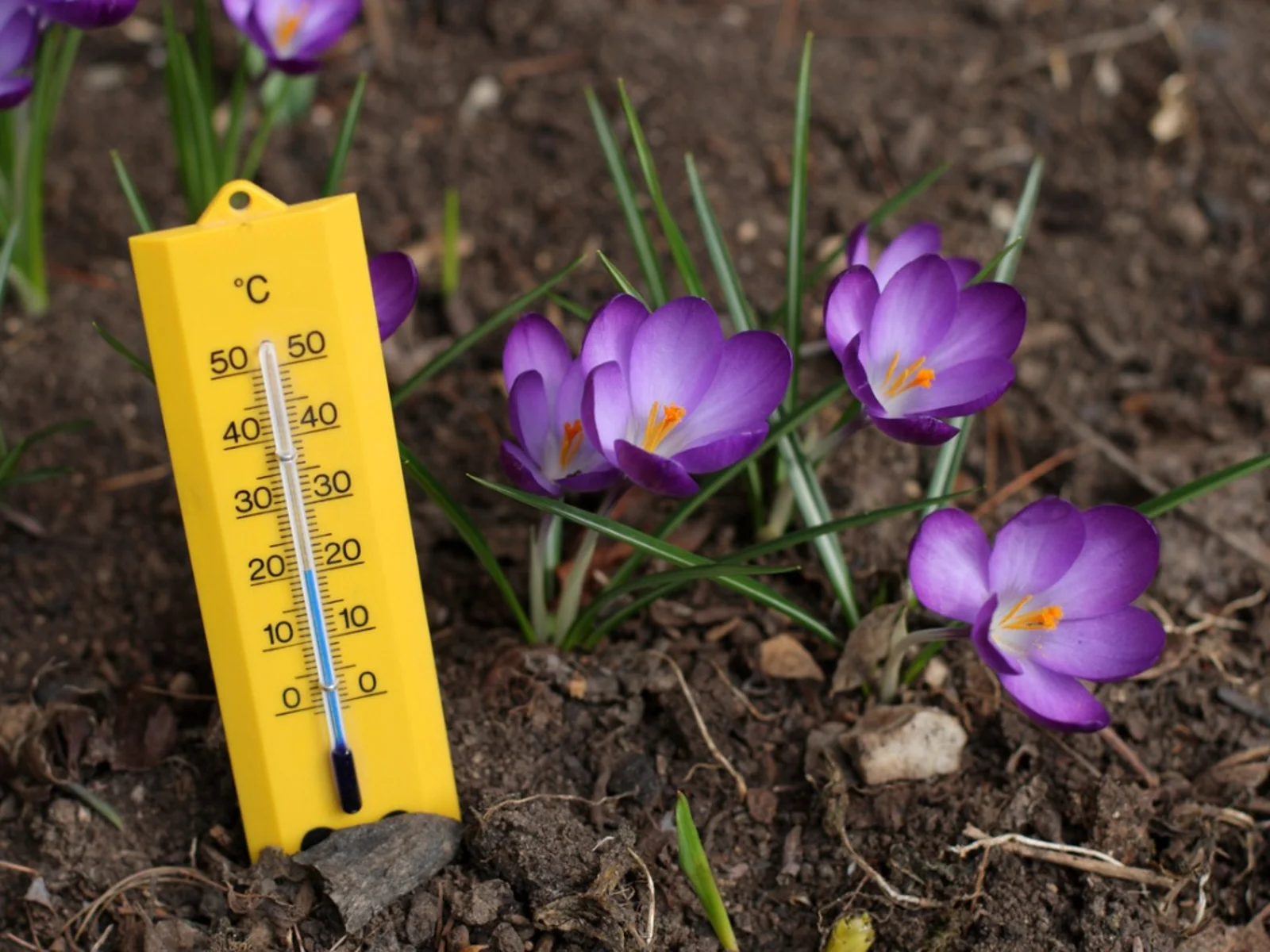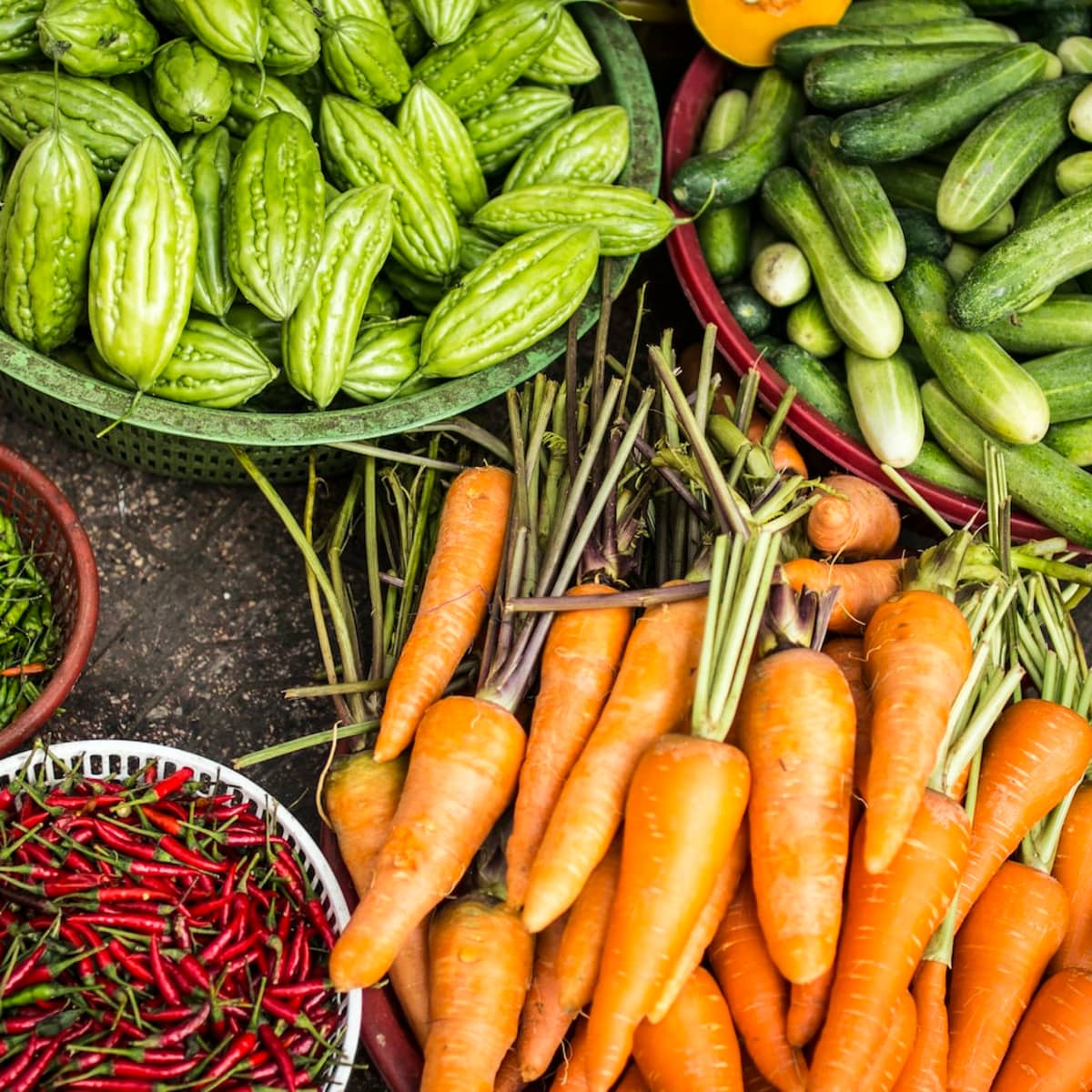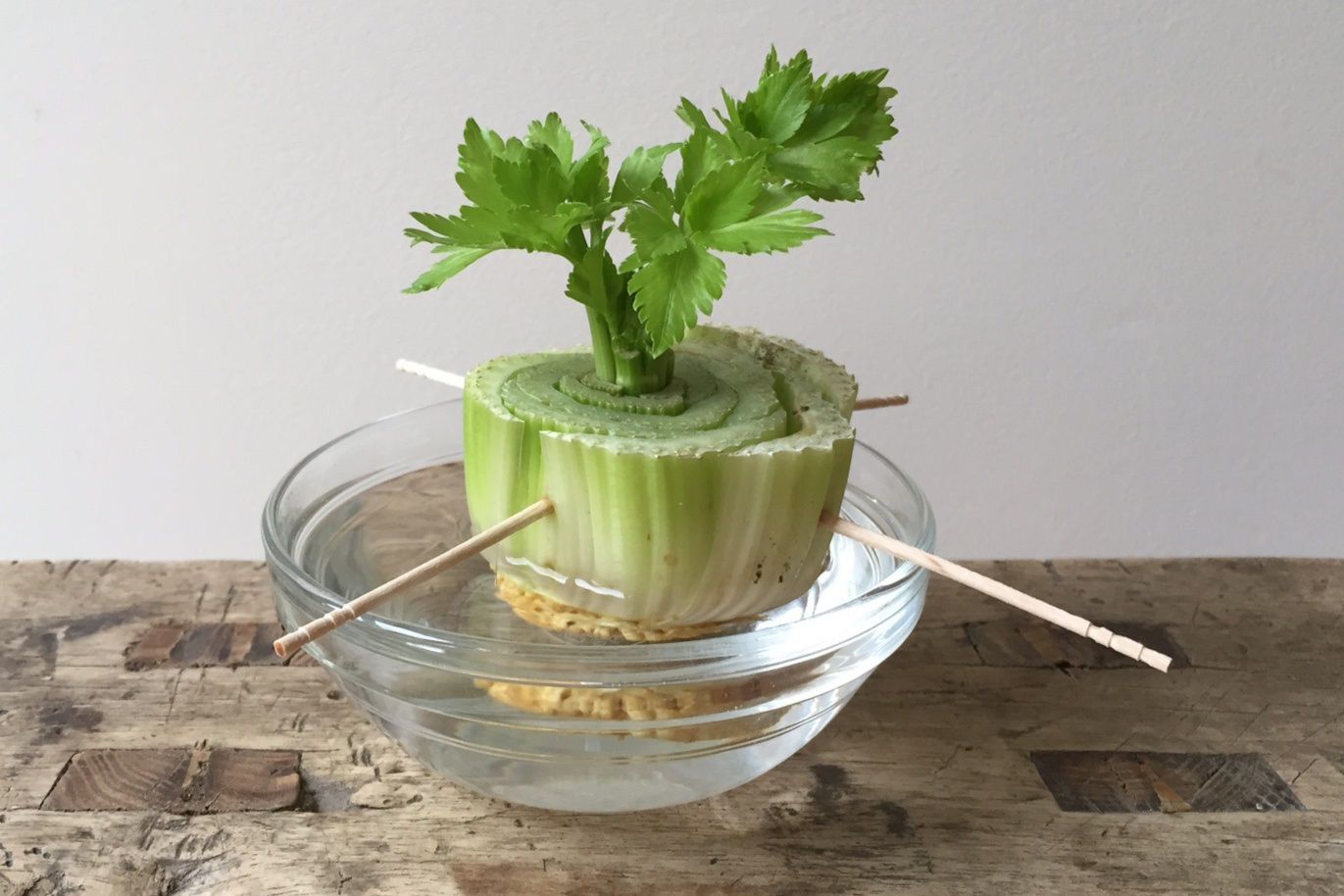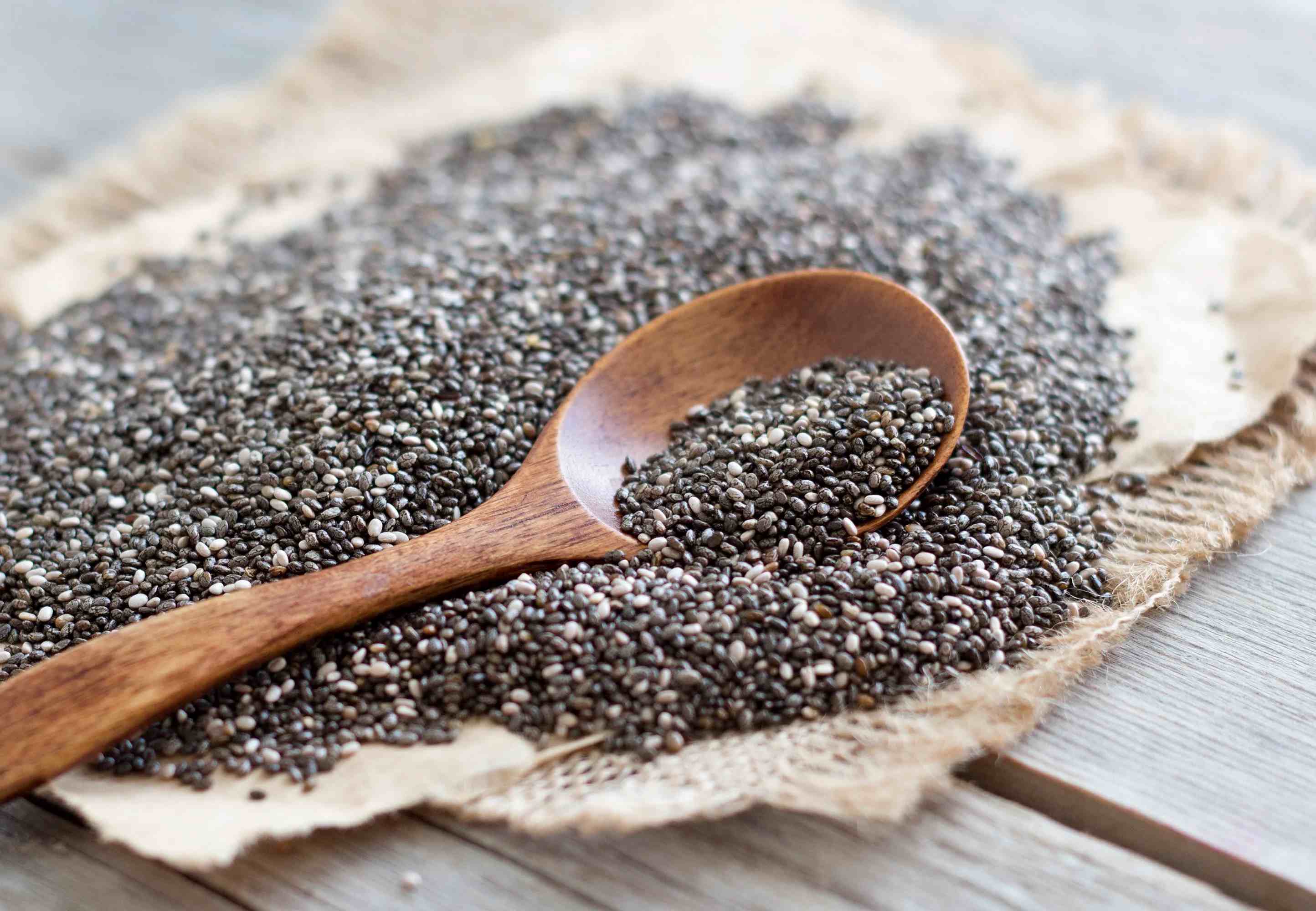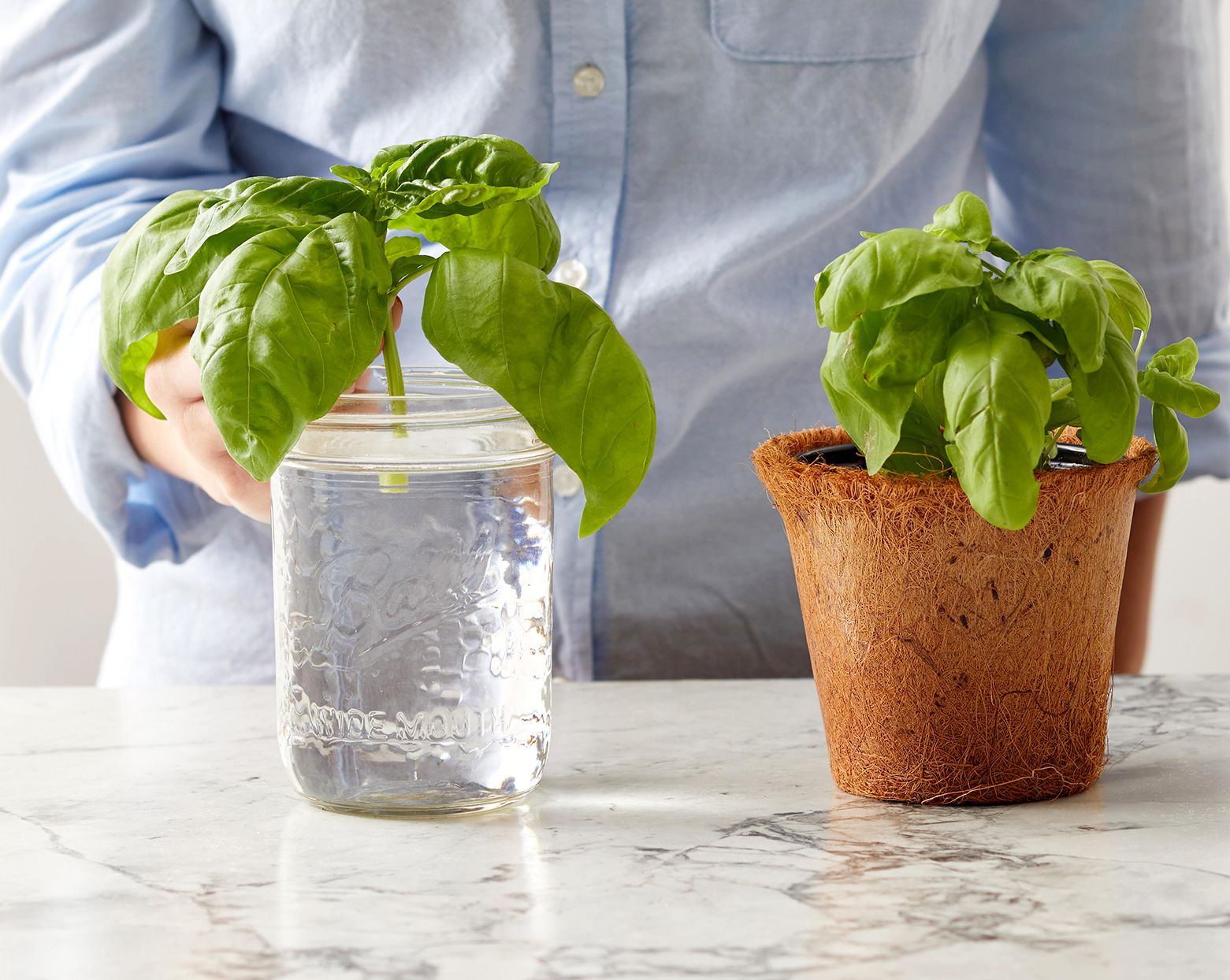Home>Gardening Techniques>DIY Projects>What Can You Do With Sunflowers
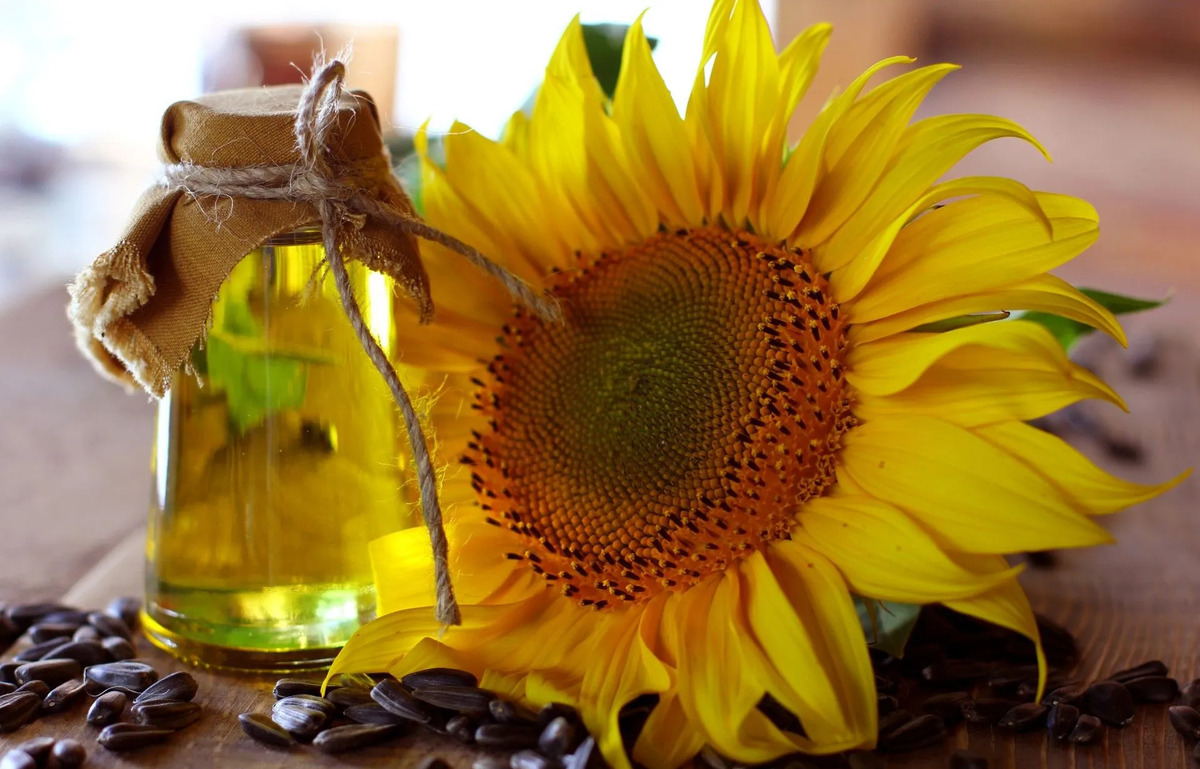

DIY Projects
What Can You Do With Sunflowers
Modified: January 22, 2024
Discover creative and fun DIY projects using sunflowers. From home decor to beauty products, find innovative ways to incorporate sunflowers into your life. Explore endless possibilities with sunflower DIY ideas!
(Many of the links in this article redirect to a specific reviewed product. Your purchase of these products through affiliate links helps to generate commission for Chicagolandgardening.com, at no extra cost. Learn more)
Table of Contents
Introduction
Sunflowers are not only beautiful to behold, but they also offer a myriad of practical and creative uses. From their seeds to their vibrant petals, every part of the sunflower serves a purpose, making it a versatile and valuable plant. Whether you're a gardening enthusiast, a culinary aficionado, or a DIY enthusiast, there are numerous ways to incorporate sunflowers into your projects and everyday life. In this article, we'll explore the diverse applications of sunflowers, shedding light on their potential beyond being a mere ornamental plant.
The sunflower, with its radiant yellow petals and strikingly large flower head, has long been admired for its beauty and symbolism. However, its utility extends far beyond aesthetics. This resilient plant has been cultivated for centuries, not only for its visual appeal but also for its valuable byproducts. From the seeds that are packed with nutrients to the oil extracted from them, sunflowers offer a wealth of opportunities for both practical and decorative endeavors. Let's delve into the multifaceted world of sunflowers and discover the array of possibilities they present.
Sunflower Seeds
Sunflower seeds are a powerhouse of nutrition and versatility. These small, tear-shaped seeds are not only a popular snack but also a valuable ingredient in various culinary creations. Packed with essential nutrients such as protein, healthy fats, fiber, and a range of vitamins and minerals, sunflower seeds offer a wholesome addition to one’s diet.
From a culinary perspective, sunflower seeds can be used in a multitude of ways. Whether sprinkled over salads, added to granola or trail mix, or incorporated into baked goods, these seeds lend a delightful crunch and nutty flavor to dishes. Additionally, they can be ground into a fine powder to create sunflower seed flour, providing a gluten-free alternative for baking.
Beyond their culinary applications, sunflower seeds are also utilized in the production of sunflower oil. The seeds are carefully processed to extract the oil, which is renowned for its light flavor and high smoke point, making it ideal for cooking, frying, and salad dressings. Furthermore, sunflower oil is a source of vitamin E and unsaturated fats, contributing to its appeal as a heart-healthy option in the kitchen.
When it comes to snacking, roasted and seasoned sunflower seeds are a popular choice, offering a satisfying and nutritious alternative to traditional snacks. Whether enjoyed on their own or as part of a trail mix, these seeds provide a convenient and flavorful way to curb hunger while benefiting from their nutritional value.
Whether consumed as a snack, incorporated into recipes, or pressed into oil, sunflower seeds offer a wealth of possibilities in both culinary and nutritional realms. Their versatility and health benefits make them a valuable addition to any pantry, catering to a wide range of dietary preferences and culinary endeavors.
Sunflower Oil
Sunflower oil, extracted from the seeds of the sunflower plant, is a versatile and widely used cooking oil with a range of culinary and practical applications. Known for its mild flavor and high smoke point, sunflower oil is a popular choice for frying, roasting, and sautéing, making it a staple in many kitchens around the world.
One of the key attributes of sunflower oil is its high smoke point, which makes it suitable for high-heat cooking methods. This heat stability prevents the oil from breaking down and producing harmful compounds, making it an excellent option for frying and searing a variety of foods.
Besides its culinary uses, sunflower oil is also valued for its health benefits. It is rich in vitamin E, an antioxidant that supports overall health and well-being. Additionally, sunflower oil contains unsaturated fats, including omega-6 fatty acids, which are essential for the body’s functions. When used in moderation as part of a balanced diet, sunflower oil can contribute to heart health and overall wellness.
Beyond the kitchen, sunflower oil has practical applications in skincare and haircare. Its light texture and moisturizing properties make it a popular ingredient in natural beauty products, including lotions, creams, and hair treatments. The nourishing qualities of sunflower oil make it a gentle and effective option for promoting healthy skin and hair.
In the realm of DIY projects, sunflower oil can be utilized as a natural and eco-friendly wood conditioner and polish. Its light consistency and ability to penetrate wood make it an excellent choice for preserving and enhancing the natural beauty of wooden surfaces.
With its culinary versatility, health benefits, and practical applications in beauty and DIY projects, sunflower oil stands as a multifaceted and valuable product that extends beyond the confines of the kitchen.
Sunflower Meal
Sunflower meal, a byproduct of the oil extraction process, is a valuable component with diverse applications in animal feed, food production, and sustainable practices. After the oil is extracted from sunflower seeds, the remaining meal, rich in protein and fiber, serves as a nutritious and sustainable ingredient in various industries.
In animal nutrition, sunflower meal is a sought-after feed ingredient for livestock, poultry, and aquaculture. With its high protein content and essential amino acids, it provides a valuable source of nutrients for animal growth, development, and overall health. The inclusion of sunflower meal in animal diets supports optimal performance and contributes to the production of high-quality meat, eggs, and dairy products.
Moreover, sunflower meal is utilized in pet food formulations, offering a natural and nutritious protein source for companion animals. Its digestibility and amino acid profile make it a beneficial ingredient in pet diets, aligning with the growing demand for wholesome and sustainable pet nutrition.
In the realm of food production, sunflower meal finds applications in plant-based protein products and meat alternatives. With the rising interest in sustainable and plant-derived protein sources, sunflower meal serves as a valuable ingredient for creating nutritious and environmentally friendly food options.
From an environmental perspective, sunflower meal contributes to sustainable agricultural practices. As a byproduct of sunflower oil production, it supports the concept of circular economy, where resources are utilized efficiently and waste is minimized. The incorporation of sunflower meal in animal feed and food production aligns with the principles of sustainability and resource conservation.
Overall, sunflower meal plays a pivotal role in animal nutrition, food production, and sustainable practices, offering a valuable and versatile ingredient with positive implications for both the agricultural and food industries.
Sunflower Hulls
Sunflower hulls, the outer shell that encases the sunflower seeds, are a valuable and versatile byproduct with applications in animal bedding, biofuel production, and composting. These fibrous and nutrient-rich hulls, often overlooked in the shadow of the seeds, offer a range of practical and sustainable uses.
In the realm of animal husbandry, sunflower hulls serve as an effective and environmentally friendly bedding material for livestock, poultry, and small animals. Their absorbent nature and insulating properties make them a preferred choice for providing comfortable and hygienic bedding, contributing to the well-being and health of animals in agricultural settings.
Furthermore, sunflower hulls are utilized in the production of biofuels, particularly as a biomass fuel source. Through processes such as pelletization and combustion, the high cellulose and lignin content of sunflower hulls make them a viable and renewable energy resource. As a sustainable alternative to traditional fossil fuels, sunflower hulls play a role in reducing carbon emissions and promoting eco-friendly energy solutions.
Composting, a fundamental practice in sustainable gardening and agriculture, benefits from the inclusion of sunflower hulls. Their carbon-rich composition contributes to the creation of nutrient-dense compost, enriching the soil and supporting plant growth. When incorporated into composting systems, sunflower hulls aid in the decomposition process and the development of fertile soil amendments.
Moreover, sunflower hulls have been explored for their potential as a raw material in the production of high-value products, such as bio-based polymers and biodegradable packaging materials. Their abundance and sustainable attributes position sunflower hulls as a promising resource for the development of eco-friendly materials that align with the principles of circular economy and environmental stewardship.
Overall, sunflower hulls, often considered a byproduct of sunflower seed processing, offer a spectrum of practical applications in animal care, energy production, soil enrichment, and the creation of sustainable materials, contributing to a holistic and resource-efficient approach to agricultural and industrial practices.
Sunflower Biomass
Sunflower biomass, encompassing the entire plant material of the sunflower, holds significant potential as a renewable and sustainable resource with applications in bioenergy production, soil enrichment, and the development of biobased products. Beyond the seeds and hulls, the entire sunflower plant contributes to a range of practical and eco-friendly endeavors.
One notable application of sunflower biomass is in the production of bioenergy, where the plant material is utilized as a feedstock for biofuel production. Through processes such as biomass gasification and bioethanol production, sunflower biomass serves as a source of renewable energy, contributing to the reduction of greenhouse gas emissions and the transition towards sustainable energy solutions.
Furthermore, sunflower biomass plays a role in soil enrichment and agricultural sustainability. When incorporated into the soil through techniques such as green manure or mulching, sunflower biomass contributes organic matter, nutrients, and beneficial microorganisms to the soil ecosystem. This enhances soil fertility, promotes water retention, and supports the cultivation of healthy and productive crops.
In addition to its contributions to energy and agriculture, sunflower biomass has been explored for its potential in the development of biobased products. The cellulose and lignin components present in sunflower biomass offer opportunities for the creation of biodegradable plastics, sustainable packaging materials, and bio-based chemicals, aligning with the principles of circular economy and environmental responsibility.
Moreover, the utilization of sunflower biomass in the production of biochar, a carbon-rich and stable form of charcoal, presents benefits for soil health and carbon sequestration. When applied to agricultural soils, biochar derived from sunflower biomass enhances nutrient retention, improves soil structure, and contributes to long-term carbon storage, offering a multifaceted approach to sustainable land management.
Overall, sunflower biomass, encompassing the entirety of the plant material, represents a valuable and versatile resource with applications in bioenergy production, soil enrichment, and the development of sustainable biobased products. Its potential to contribute to renewable energy, agricultural sustainability, and environmentally friendly materials underscores its significance in the realm of sustainable resource utilization.
Sunflower Decorations
Sunflowers, with their vibrant blooms and striking appearance, offer a wealth of creative and decorative possibilities, adding a touch of natural beauty to various settings and occasions. Whether utilized in floral arrangements, home décor, or event embellishments, sunflowers bring a sense of warmth and cheerfulness to their surroundings, making them a popular choice for embellishing and enlivening spaces.
One of the most prevalent uses of sunflowers in decorations is in floral arrangements and bouquets. The bold and cheerful presence of sunflowers adds a captivating element to floral compositions, whether used as the focal point or as part of a mixed arrangement. Their versatility in design applications makes them suitable for adorning homes, event venues, and outdoor spaces, infusing a sense of natural splendor into the surroundings.
Furthermore, sunflowers are often incorporated into seasonal and thematic décor, particularly during the autumn months and harvest-themed celebrations. Their warm hues and association with abundance make them an ideal choice for adorning tabletops, mantels, and entryways, creating a welcoming and festive ambiance. From wreaths and centerpieces to garlands and wall décor, sunflowers contribute to the visual appeal of seasonal and celebratory embellishments.
In addition to fresh flowers, sunflower motifs and imagery are utilized in various decorative items, including textiles, ceramics, and home accessories. The cheerful and uplifting symbolism of sunflowers is captured in decorative prints, patterns, and designs, adorning a range of products such as throw pillows, table linens, and wall art. These decorative elements infuse living spaces with a sense of joy and positivity, reflecting the radiant spirit of sunflowers.
Moreover, sunflowers are embraced as a motif in event décor, particularly for weddings, parties, and outdoor gatherings. From bouquets and boutonnieres to table settings and archway embellishments, sunflowers evoke a rustic charm and natural elegance, creating a picturesque and inviting atmosphere for celebratory occasions.
Overall, sunflowers serve as a versatile and uplifting element in decorations, offering a range of creative opportunities to infuse spaces with natural beauty, warmth, and a touch of whimsical charm. Their presence in floral arrangements, seasonal décor, home accessories, and event embellishments enriches surroundings with the timeless allure of these radiant blooms.
Conclusion
The multifaceted nature of sunflowers extends far beyond their visual appeal, encompassing a diverse array of applications that span culinary, agricultural, decorative, and sustainable realms. From the nutritional powerhouse of sunflower seeds to the versatile applications of sunflower oil, meal, hulls, and biomass, every part of the sunflower plant offers valuable contributions to various industries and practices. Whether as a source of nourishment, a renewable energy resource, or a natural adornment, sunflowers embody versatility and resourcefulness.
Within the culinary sphere, sunflower seeds and oil stand as versatile ingredients that enhance flavors, provide essential nutrients, and contribute to healthy and sustainable dietary choices. The utilization of sunflower meal and hulls in animal nutrition, food production, and environmental practices underscores the plant’s role in promoting agricultural sustainability and circular economy principles.
Moreover, the decorative allure of sunflowers adds a touch of natural charm to floral arrangements, home décor, and celebratory embellishments, infusing spaces with warmth and visual delight. Their presence in seasonal and event décor, as well as in decorative motifs, reflects the enduring appeal of sunflowers as a symbol of joy and vibrancy.
Furthermore, the sustainable potential of sunflower biomass in bioenergy production, soil enrichment, and the development of biobased products aligns with the principles of environmental stewardship and resource efficiency, highlighting the plant’s significance in sustainable resource utilization.
As a testament to their versatility and inherent beauty, sunflowers continue to captivate and inspire, offering a harmonious blend of practicality, creativity, and sustainability. Whether enriching diets, adorning spaces, or contributing to sustainable practices, sunflowers embody a timeless and versatile resource that resonates across a spectrum of industries and endeavors.
